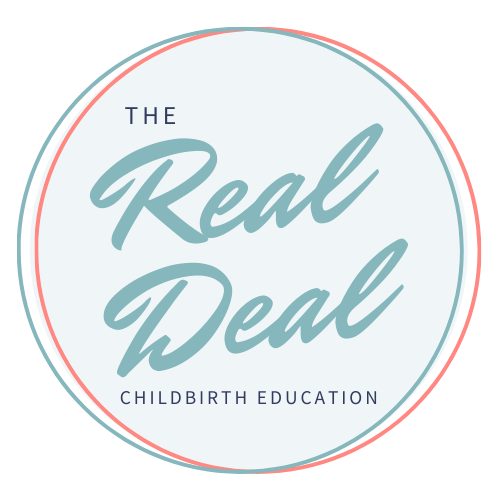Spring and Summer classes are here!
Are you expecting this summer or early fall? If so, we have what you need, scheduled through Sept 2023. First baby? We’d recommend the Prepared Childbirth and Breastfeeding/Newborn care combo package. Second or third baby? We have a Labor Skills Refresher class just for you! This 2 hour session is offered both IN PERSON as well as pre-recorded- you can pick what works best for you! Planning to VBAC? We got you covered! A convenient VBAC class is pre-recorded with a 1:1 session with Amanda or Shelley can be part of your prenatal preparations. We specialize in intimate, down to earth classes that will help you feel ready for what’s ahead. We look forward to you joining us soon! (Not sure what you need? Email us! RealDealBirth@gmail.com
It all begins with an idea. Maybe you want to launch a business. Maybe you want to turn a hobby into something more. Or maybe you have a creative project to share with the world. Whatever it is, the way you tell your story online can make all the difference.
Don’t worry about sounding professional. Sound like you. There are over 1.5 billion websites out there, but your story is what’s going to separate this one from the rest. If you read the words back and don’t hear your own voice in your head, that’s a good sign you still have more work to do.
Be clear, be confident and don’t overthink it. The beauty of your story is that it’s going to continue to evolve and your site can evolve with it. Your goal should be to make it feel right for right now. Later will take care of itself. It always does.
Make it stand out.
Whatever it is, the way you tell your story online can make all the difference.
World Doula Week
Each year, the world sets aside 1 week to recognize doulas. We love how it makes us feel proud to be doulas and to feel recognized as professionals, as well as recognizing the work doulas everywhere are doing to support families!!
Amanda and Shelley supported families through birth for many years before deciding to “retire” from that part of doula life, and now we exclusively focus on postpartum support. It’s so rewarding to see a struggling family get the “hang” of parenting– when only a few weeks ago they were on the brink of meltdown! It’s incredibly fulfilling to know you made a difference in how those early weeks of parenting began.
But it’s also hard to listen to the sadness of unexpected outcomes in birth, breastfeeding and newborn life. It’s difficult to know we can’t “fix” many things that are or will be hard.
Doulas offer an ear, a hand and a heart. We can help you tune into yourself, your baby, your intuition when everything else feels overwhelming. We can help you learn to trust yourself, your body, and your baby. We can help you learn to love all that is you, the blossoming new parent.
Do I really need to take a birth class?
It’s 2022 and you have access to Youtube, social media, and Google and Amazon. Do you really need to take a childbirth class?
Yes! Why?
Your childbirth instructor will help you and your partner understand what the normal stages of labor look like, when you should call your doctor or midwife, and what to expect at each phase. For most expectant parents, just understanding what’s ahead greatly reduces anxiety.
Why is that important?
Anxiety and stress during labor can have many negative effects during labor. When we are tense, anxious, or stressed out, we release stress hormones (like adrenaline and cortisol) which can SLOW labor, make it longer, and will increase the need for medical interventions. Being stressed/anxious can even affect our breathing, which can decrease how much oxygen our baby gets!
So on top of learning what to expect, a good childbirth class should teach you basic relaxation techniques, breathing exercises, as well as a wide variety of other comfort measures to help you and your partner manage labor pain. You might practice things like massage, positions for labor, visualizations, or other techniques which significantly reduce your perception of pain!
Does less pain in labor sound ok?
I hope so! But regardless of where you are planning to birth your baby, and what your plans are for pain management, all expectant parents should also know what medical situations might come up unexpectedly, and how to make informed decisions about their care… for instance, induction and cesareans often catch people off guard. How do we make those decisions? What are the right questions to ask? Your childbirth instructor can help you learn to navigate those unexpected situations and help you feel more confident should a medical situation arise.
Less anxiety, less pain, more confident? All sounding good so far?
What if you could learn options that might make your birth experience more positive? You can. Take a class!
What if you could learn ways to reduce the risk of having a cesarean birth? You can. Take a class!
What if you could learn about what happens after the baby is born, and how to cope with the first few weeks postpartum? You can. Take a class!
Real Deal Birth has high quality, live virtual classes that cover everything you will need to help you be ready for your birth and baby!
Doula Share 2021
Join the Central Texas Doula Association for a week or sharing! This free, virtual conference includes videos and resources on healthy pregnancy, labor and birth, feeding your baby, infant safety, care and soothing, and postpartum! Those who register go into a drawing for giveaways! You can also learn more about local doulas on the final day. It all starts Sunday November 7, 2021, so be sure to check it out!
Fall Special!
SAVE $25 WHEN YOU PURCHASE BOTH PREPARED CHILDBIRTH AND BREASTFEEDING/NEWBORN CARE CLASSES BY OCTOBER 31, 2021. SEE OUR CALENDAR FOR CLASS OFFERINGS THROUGH MARCH 2022 TO FIND ONE THAT FITS YOUR SCHEDULE!!
World Doula Week!
Shelley’s thoughts:
In honor of World Doula Week I've been thinking about what I wanted to express-- with over 25 experience as a birth and postpartum doula, what needed to be said that hasn't already? What do families "need" to know? What do doulas "need" to hear? Then I listened to the Evidence Based Birth Podcast interview with Dr. Amber Warmsley (OBGYN) and had my "aha" moment... The interview doesn't talk about doulas AT ALL. Not even 1 reference. But the interview is all about what doulas are all about, which is #1 supporting PEOPLE through pregnancy, birth and postpartum in all aspects of who they are- their body, mind and soul. And #2 that doulas encourage their clients to seek evidence based information, and make decisions that fit best with their family... which includes options that perhaps are not mainstream, like birth centers or home-births, or bed-sharing. Doulas recognize that there is no ONE answer that is right for everyone, and that "safety" is really a subjective word. If you haven't already listened to this podcast, I highly encourage you to do so, even if you are far away from being pregnant or having babies. It will make you think! (And I'll totally admit, I have a serious doula crush on this OB!) Happy World Doula Week to all my colleagues out there, and thank you to all the other professionals who support the work we do!
https://evidencebasedbirth.com/evidence-based-ob-gyn-care-with-dr-amber-warmsley/
“What if I don’t make enough milk?”
This question is one of the most common fears new parents face regarding breast/chestfeeding. Sometimes there can be special circumstances that prevent a new parent from making enough milk. But truthfully, with the right start, the majority of parents who want to exclusively feed their babies their own milk are able to do so! Let’s look at the 5 steps to getting the right start to establishing a good milk supply:
1-Get Naked, Baby! Hold your baby skin to skin after the birth, for at least an hour (uninterrupted.) This triggers the hormones that begin milk production. Babies who stay with their birthing parent typically initiate the first feeding within that Golden Hour on their own, and are generally better breastfeeders.
2- Feed Often! Newborns have tiny tummies and naturally will need to eat every 2-3 hours, and this frequency is critical in establishing a good milk supply. In fact, recent studies have shown that the more times a parent feeds their baby in the first 2 weeks, the better the supply will be long term. If your baby is sleepy, wake them up! -- They should be getting a minimum of 8 feeds every 24 hours. (more is even better!)
3- Pump it Up! If you are separated from your baby, or if your baby is a “sleepy” eater then it may be necessary to hand express and/or pump to properly stimulate the body in the early weeks. In fact, a Stanford University study showed that parents who hand expressed in the early weeks had better supply than those who did not. Here is a great video that shows how to do it!
https://med.stanford.edu/.../hand-expressing-milk.html
4- Supply and Demand! Avoid formula supplementation, unless it becomes medically necessary, especially in those early weeks. Milk is made on a Supply and Demand basis, which means the more milk that comes out of the parent’s body, the more is made. When we supplement with formula, we take away the demand from the parent’s body, and it can have a negative effect on milk supply. If you do need to supplement, use pumped milk when available. If you do introduce formula for medical reasons, wean off the supplementation as quickly as you can.
5- Call in the Troops! If you are struggling with milk supply, seek professional help from a lactation consultant, a breastfeeding educator, or a postpartum doula. New parents have a lot going on in those first couple of weeks. Guidance from an experienced professional can make a huge difference in your long term supply and breastfeeding relationship!
Safe Pregnancy As COVID-19 Surges: What's Best For Mom And Baby?
This article displays the importance of well designed studies and correct interpretation of the data we currently have.
https://www.npr.org/.../navigating-pregnancy-risks-in-the...




